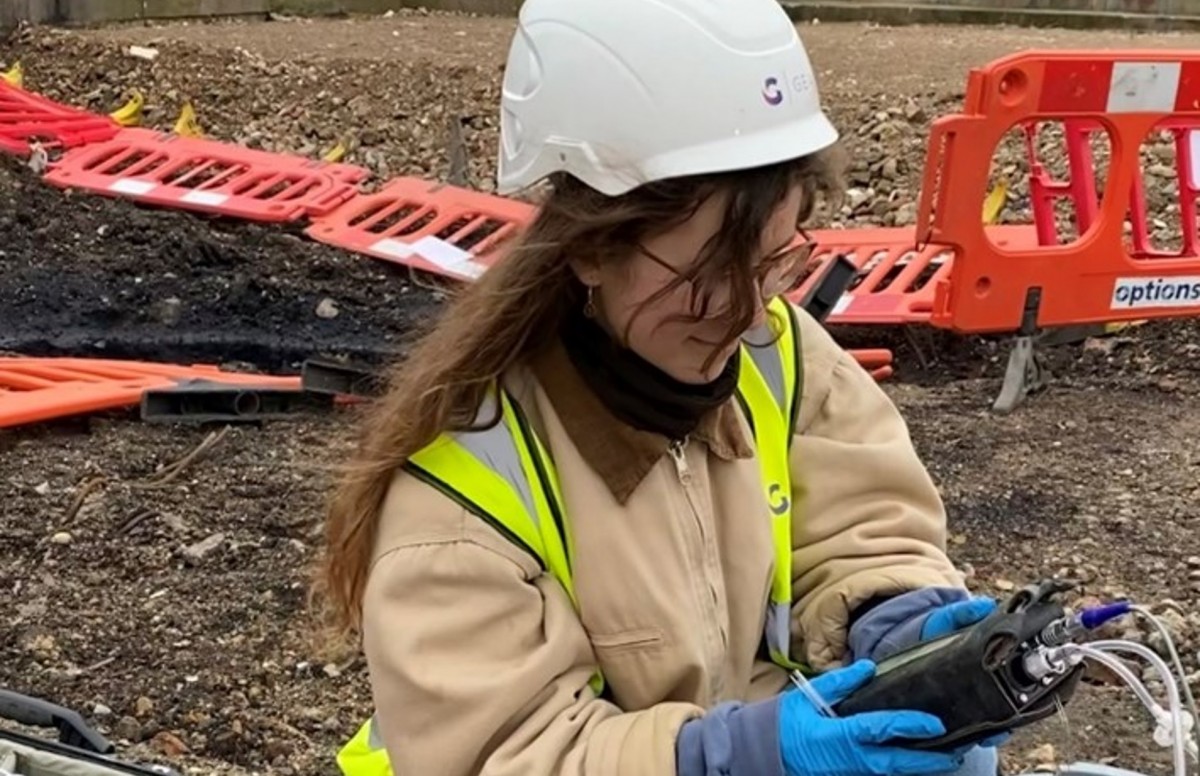The 8-Minute Rule for Geotheta
The 8-Minute Rule for Geotheta
Blog Article
Getting My Geotheta To Work
Table of ContentsGeotheta Things To Know Before You Get ThisFacts About Geotheta UncoveredSome Of Geotheta8 Simple Techniques For GeothetaUnknown Facts About Geotheta

They perform site examinations, collect samples, do research laboratory tests, and analyze information to review the suitability of the ground for building and construction jobs - Consulting Engineer. Based on their searchings for, geotechnical engineers supply recommendations for foundation design, incline stability, maintaining structures, and mitigation of geotechnical risks. They work together with other professionals, such as designers, architectural engineers, and building and construction teams, to guarantee that geotechnical factors to consider are incorporated right into the general project style and execution
By assessing the behavior and buildings of dirt and rock, they can recognize possible geotechnical dangers such as landslides, soil settlement, or slope instability. Their competence helps protect against failings or crashes that could threaten lives and residential property. Here are some detailed duties and obligations of a geotechnical designer: Website Investigation: Geotechnical engineers conduct website investigations to gather information on subsurface problems.
They translate the information to recognize the properties and habits of the dirt and rock, including their strength, permeability, compaction attributes, and groundwater problems. Geotechnical Analysis and Design: Geotechnical engineers examine the data accumulated throughout website investigations to examine the security and viability of the site for building jobs. They carry out geotechnical computations and modeling to review elements such as bearing capacity, settlement, slope stability, side planet pressures, and groundwater flow.
The Ultimate Guide To Geotheta
Structure Style: Geotechnical designers play a critical duty in creating foundations that can securely support the desired structure. They examine the soil problems and lots demands to determine the proper foundation type, such as superficial structures (e.g., grounds), deep structures (e.g (https://dc-state.cataloxy.us/firms/dc-anacostia/geotheta.com.htm)., piles), or specialized techniques like dirt improvement. They consider factors such as negotiation limitations, bearing capacity, and soil-structure communication to create ideal foundation layouts
They examine building and construction strategies, monitor website tasks, and conduct area inspections to validate that the layout referrals are followed. If unpredicted geotechnical concerns develop, they assess the scenario and supply referrals for remediation or modifications to the design. Risk Analysis and Mitigation: Geotechnical engineers analyze geotechnical hazards and risks related to the job website, such as landslides, liquefaction, or soil disintegration.

Cooperation and Communication: Geotechnical engineers function closely with other specialists included in a task, such as designers, structural designers, and building and construction teams. Effective interaction and cooperation are necessary to integrate geotechnical considerations into the overall task layout and construction process. Geotechnical designers offer technological know-how, response inquiries, and make sure that geotechnical requirements are satisfied.
Geotheta for Dummies
Below are some sorts of geotechnical engineers: Foundation Engineer: Structure engineers focus on making and examining foundations for frameworks. They assess the soil conditions, lots demands, and website characteristics to establish the most appropriate foundation kind and layout, such as shallow structures, deep structures, or specialized strategies like stack foundations.
They evaluate the elements influencing slope security, such as dirt residential or commercial properties, groundwater problems, and slope geometry, and create techniques to stop slope failings and reduce risks. Earthquake Engineer: Quake designers focus on assessing and creating structures to withstand seismic pressures. They examine the seismic danger of a site, evaluate dirt liquefaction possibility, and create seismic style criteria to ensure the safety and security and strength of frameworks throughout earthquakes.
They carry out area testing, collect examples, and evaluate the accumulated data to identify the dirt properties, geologic developments, and groundwater conditions at a website. Geotechnical Instrumentation Engineer: Geotechnical instrumentation designers concentrate on tracking and measuring the behavior of dirt, rock, and frameworks. They mount and keep instrumentation systems that keep an eye on elements such as soil negotiation, groundwater levels, slope movements, and structural displacements to assess efficiency and supply very early cautions of possible issues.
What Does Geotheta Mean?
They perform examinations such as triaxial tests, combination examinations, direct shear examinations, and leaks in the structure examinations to collect data for geotechnical analysis and style. Geosynthetics Designer: Geosynthetics engineers focus on the design and application of geosynthetic products, such as geotextiles, geogrids, and geomembranes. They use these products to improve soil security, enhance inclines, provide drain solutions, and control disintegration.
They have a tendency to be investigatory people, which indicates they're intellectual, reflective, and inquisitive. They are interested, methodical, logical, logical, and sensible. Some of them are additionally social, meaning they're kind, charitable, cooperative, patient, caring, practical, empathetic, skillful, and friendly - Geo Tech Engineering.
In the workplace environment, geotechnical engineers utilize specialized software application devices to execute calculations, develop designs, and assess information. They prepare records, testimonial job specs, interact with customers and staff member, and coordinate job tasks. The office setup gives a conducive environment for study, evaluation, and partnership with other experts associated with the task.
Some Known Facts About Geotheta.
They often go to task sites to conduct website investigations, evaluate geotechnical problems, and gather information for analysis. These brows through involve traveling to various locations, occasionally in remote or challenging terrains. Geotechnical designers may execute soil tasting, conduct tests, and display building activities to guarantee that the geotechnical elements of the job are being carried out appropriately.
Geotechnical engineers likewise work in specialized geotechnical research laboratories. Geotechnical lab designers function thoroughly in these environments, taking care of testing tools, running tools, and taping information.
Report this page